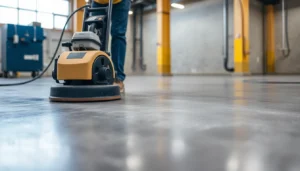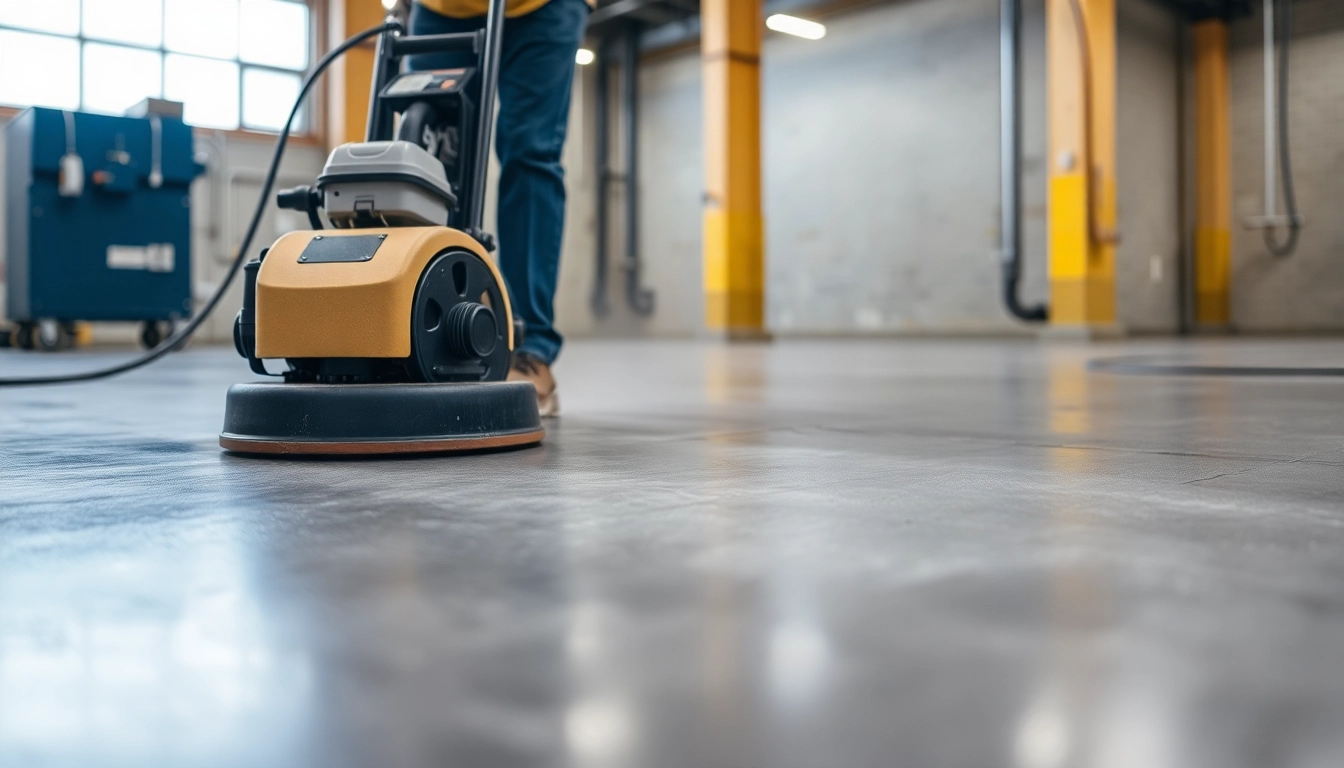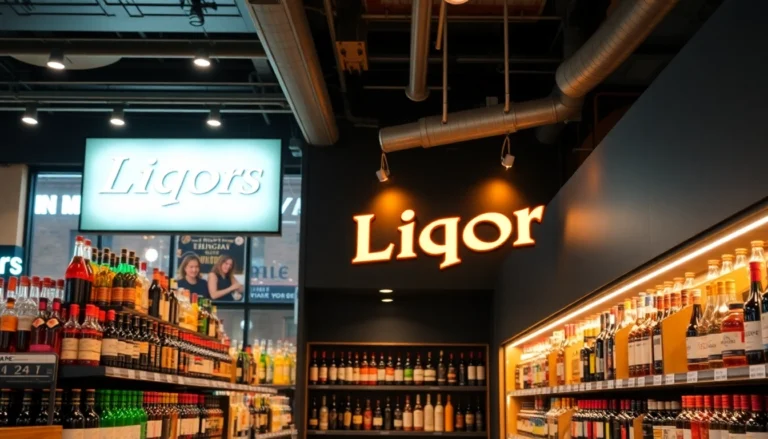Understanding Concrete Grinding in Birmingham: Basics and Benefits
Concrete grinding has become an essential process for property owners and contractors aiming to achieve smooth, durable, and aesthetically pleasing floors. As Birmingham continues to grow as a commercial and industrial hub, the demand for high-quality concrete finishing solutions has surged. Whether you’re updating an existing facility or designing a new floor installation, understanding the fundamentals and advantages of concrete grinding is key to making informed decisions. For those seeking expert assistance, exploring concrete grinding Birmingham options ensures top-tier results tailored to your needs.
What Is Concrete Grinding? An Introduction to Process and Techniques
Concrete grinding involves using specialized equipment equipped with diamond-embedded abrasives to level, smooth, and refine concrete surfaces. This process can be performed on freshly poured slabs to achieve a uniform finish, or on existing floors to remove imperfections, coatings, or surface contaminants. The technique typically employs a walk-behind grinder that can be adjusted for various levels of material removal and surface refinement. Depending on project requirements, grinding can range from light smoothing to aggressive material removal, making it a versatile solution for many applications.
The process begins with an assessment of the surface condition, followed by selecting the appropriate grinding disks and settings. Walk-behind grinders with varying diamond grit sizes can effectively remove rough patches, stains, and surface defects. Advanced machines may incorporate vacuum systems to control dust and improve safety standards.
Advantages of Choosing Professional Concrete Grinding Services
- Enhanced Surface Durability: Proper grinding preps floors for sealing, polishing, or coating, significantly extending their lifespan.
- Superior Aesthetic Appeal: A polished, smooth surface contributes to professional and clean interior designs, suitable for retail spaces, offices, or industrial facilities.
- Cost-Effective Maintenance: Regular grinding and polishing can reduce the need for future repairs or replacements, saving money over time.
- Improved Safety: Flat, slip-resistant surfaces lower the risk of accidents and enhance workplace safety compliance.
- Environmental Benefits: The process often involves minimal chemical use and can incorporate dust containment systems, making it an eco-friendly choice.
Common Applications for Commercial and Industrial Floors in Birmingham
In Birmingham’s vibrant commercial landscape, concrete grinding serves numerous sectors, including manufacturing plants, warehouses, retail outlets, and healthcare facilities. Some typical applications include:
- Floor Levelling: Correcting uneven surfaces before installing epoxy coatings or tiles.
- Surface Preparation: Removing old coatings, stains, or surface contaminants to prepare for new finishes.
- Polished Concrete Floors: Creating glossy, low-maintenance surfaces that withstand heavy foot traffic.
- Curbing Safety Hazards: Eliminating trip hazards caused by surface irregularities.
Key Factors in Selecting a Concrete Grinding Contractor in Birmingham
Experience and Certifications That Matter
Choosing a contractor with proven experience and relevant certifications ensures your project adheres to industry standards. Look for companies with a portfolio of completed projects, along with credentials from professional organizations like the International Concrete Repair Institute (ICRI) or the National Ready Mixed Concrete Association (NRMCA). Experienced contractors understand the nuances of different concrete mixes and surface conditions, allowing them to select appropriate methods and equipment for optimal results.
Assessing Equipment Quality and Techniques Used
State-of-the-art machinery with diamond tooling is essential for efficient and precise grinding. High-quality equipment reduces operational time and produces a more refined finish, especially important for polished or highly decorative floors. Inquire about techniques such as edge grinding, scarification, or the use of dust extraction systems to gauge a contractor’s commitment to quality and safety.
Customer Reviews and Project Portfolios
Testimonials and visual references of previous work provide insights into a contractor’s reliability and skill level. Look for reviews highlighting punctuality, professionalism, and craftsmanship. Seeing a diverse portfolio demonstrates versatility in handling different floor types and project scales.
Best Practices for Preparing Your Birmingham Property for Concrete Grinding
Surface Inspection and Clearing Obstacles
Ensure the surface is thoroughly inspected for cracks, chipping, or other damages that may require repair before grinding. Remove all furniture, fixtures, and debris to facilitate unobstructed access. Clearing the workspace reduces project delays and ensures safety for workers.
Choosing the Right Finish and Sealant Options
Decide on your desired appearance—whether a matte, satin, or high-gloss finish—and select appropriate sealants to enhance durability. Chemical sealers can protect against stains and moisture, while topical coatings may add slip resistance or aesthetic accents. Consulting with professionals during this stage guarantees compatibility with your environmental conditions and usage expectations.
Timing and Scheduling Considerations
Plan the project during periods of low occupancy to minimize disruptions. Weather conditions, especially in Birmingham’s seasonal climate, can influence curing and sealing times. Proper scheduling ensures quality results and smooth project flow.
Cost Estimates and Timeline Expectations for Birmingham Concrete Grinding Projects
Factors Affecting Project Costs
- Size and complexity of the surface area
- Condition of the existing concrete (damage, contaminants)
- Desired finish and additional services (polishing, sealing)
- Access restrictions and workspace setup
On average, commercial projects in Birmingham may range from a few hundred to several thousand pounds, depending on these factors. Obtaining detailed quotes from reputable contractors provides clarity on investment and scope.
Typical Project Durations and Workflow
Simple surface preparation on small areas can be completed within a day, whereas larger, more intricate projects may span several days. The workflow usually involves initial surface assessment, grinding passes, polishing (if required), sealing, and curing. Efficient coordination and clear communication ensure timely completion.
Estimating Long-Term Value and Maintenance
Investing in high-quality grinding and polishing enhances the lifespan of your floors, reducing long-term maintenance costs. Routine cleaning and periodic inspections can sustain the aesthetic and functional qualities for years, providing excellent return on investment.
Enhancing Your Floors with Final Polishing and Sealant Applications in Birmingham
Choosing the Right Polishing Styles for Your Business
Options include burnished, satin, or high-gloss finishes, each offering different aesthetic effects and slip resistance. The choice depends on your operational needs and design preferences. Polished concrete can be customized with color stains or decorative aggregates for a unique appearance.
Sealing Techniques for Increased Durability and Appearance
Sealants come in various forms, such as penetrating sealers, topical coatings, or epoxy overlays. Selecting the appropriate method enhances stain resistance, moisture protection, and overall surface appearance. Proper sealing after grinding ensures longevity and reduces maintenance efforts.
After-Project Care and Ongoing Maintenance Tips
- Regular sweeping and damp mopping to prevent dirt accumulation
- Immediate cleaning of spills to prevent staining
- Periodic re-sealing based on usage and environmental exposure
- Avoiding harsh chemicals that may degrade sealants or finishes
Adopting consistent maintenance routines preserves the quality and appearance of your floors for decades to come.

















